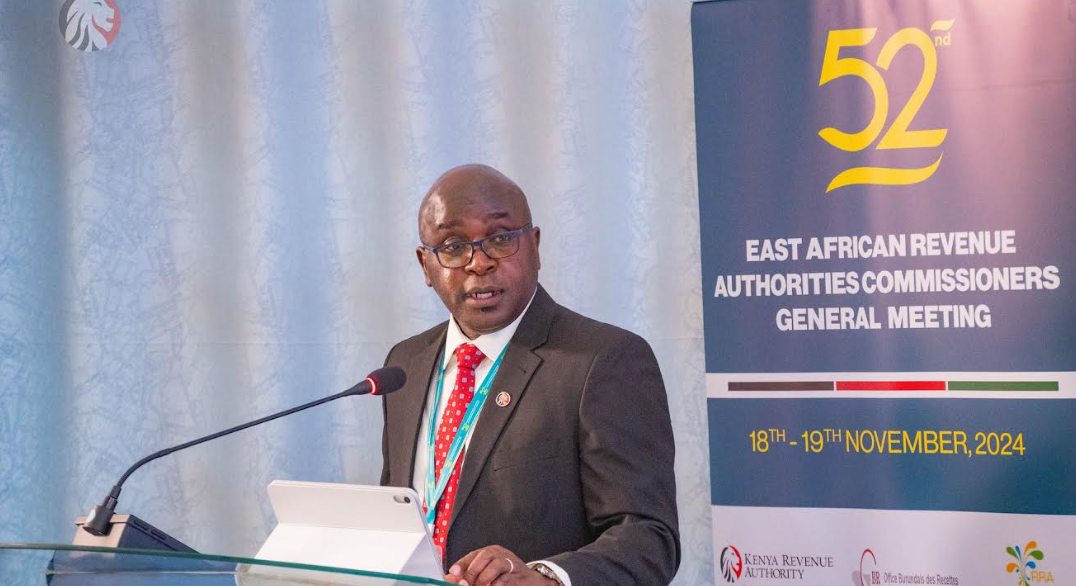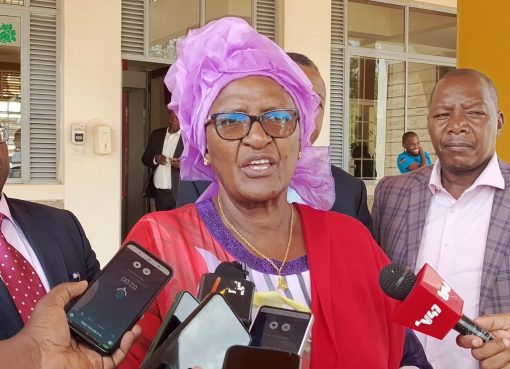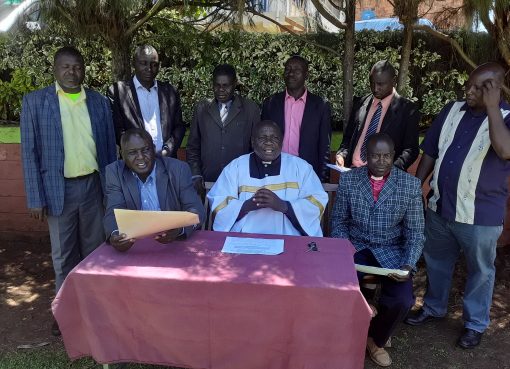The Kenya Revenue Authority (KRA) has renewed its commitment to combat corruption after the Authority introduced a series of robust measures designed to uphold integrity, ensure accountability, and enhance public confidence in the tax administration system.
In the First Quarter (Q1) of the Financial Year (FY) 2024/2025 (July – September 2024), KRA issued a total of 84 verdicts sanctioning staff for various misconducts compared to just 37 verdicts during the same period in FY 2023/2024.
KRA Commissioner General, Mr. Humphrey Wattanga, said that this represents a significant increase in disciplinary actions underscoring the leadership’s firmer stance on corruption within the organisation.
“Among these sanctions, Summary Dismissals rose sharply to twenty-five cases in Q1 of FY 2024/2025 from just seven in the same period last year, reflecting KRA’s zero-tolerance policy towards corruption,” said Wattanga.
He disclosed that the number of Termination of Services cases dropped from eight in Q1 of FY 2023/2024 to three in Q1 of FY 2024/2025, while the combined cases of Warning and Lifting of Interdiction decreased from seven to four, indicating a more focused approach towards dealing with misconduct.
To further bolster the fight against corruption, Wattanga said that KRA has leveraged technology to seal revenue leakages. One of the key innovations is the introduction of iWhistle, a web-based platform that allows the public to anonymously report corruption and tax evasion activities.
“The iWhistle has been instrumental in recovering Sh4.22 billion in FY 2023/2024 alone. To incentivise the reporting of tax malpractices, KRA has also established a reward scheme offering informers 5% of the tax recovered with a maximum payout of Sh5 million per case. Moreover, the Authority has instituted an Integrity Award Framework to recognise and celebrate KRA staff who exemplify outstanding support in promoting integrity within the organisation,” he said.
According to Wattanga, these initiatives have contributed significantly to the improvement of KRA’s Corruption Perception Index (CPI), which has seen a notable upward shift, rising from 30.0% in FY 2023/2024 compared to 38.6% in FY 2019/2020.
In addition to these efforts, KRA has implemented lifestyle audits which have proven to be effective in identifying illicit wealth among staff. In FY 2023/2024, 41 lifestyle audits were conducted, leading to the recovery of Sh549 million.
Other key anti-corruption measures include profiling of tax evaders and the adoption of a whole-of-government approach, which promotes collaboration across public institutions to enhance compliance and curb evasion.
Wattanga said that KRA has also introduced Risk Driven Compliance interventions, ensuring that all actions taken are supported through risk assessments and data analysis. This approach enhances transparency by informing taxpayers of the basis for KRA’s actions while also ensuring proper documentation for audit trails.
“We are committed to transforming KRA into a world-class institution with the highest standards of integrity and accountability. Through these strategic measures, including the use of technology and a firm stance on corruption, we are not only enhancing revenue collection but also building a more transparent and efficient tax administration system for the people of Kenya,” said the Commissioner General.
Wattanga highlighted that KRA has further established Corruption Prevention Committees (CPCs) to set up priorities in the prevention of corruption within operational areas. The CPCs take appropriate administrative actions against any reported malpractices, report on emerging risks, and meet quarterly to evaluate implementation of the Public Service Integrity Programme (PSIP) activities.
“In this fight against the vice of corruption, KRA is working in close collaboration with other law enforcement agencies such as the Ethics and Anti-Corruption Corruption Commission (EACC), Directorate of Criminal Investigations (DCI), Asset Recovery Authority (ARA), among others,” he said.
Wattanga added that KRA is also cooperating with other regional jurisdictions to exchange information, which is crucial in revealing corruption schemes.
“Further, KRA is currently implementing the East African Revenue Authorities (EARA) Anti-Corruption Framework that includes the establishment of an integrity communication strategy and whistle-blower mechanisms,” he said.
Wattanga said that the Authority is also in the initial stages of implementing the already ratified World Customs Organisation East and Southern Africa (WCO ESA) Code of Conduct on Integrity.
He added that to promote a corruption-free culture, KRA has heightened its efforts to create integrity awareness amongst its staff on a regular basis, taking into account anti-corruption policies and bribery risk assessment in all areas of operation.
“The Authority also conducts anti-corruption sensitisations to its external stakeholders. KRA’s concerted efforts in tackling corruption reflect its ongoing commitment to ensuring that all Kenyans pay their fair share of taxes which will help fund essential public services and contribute to the country’s economic growth,” said Wattanga.
By Joseph Ng’ang’a





